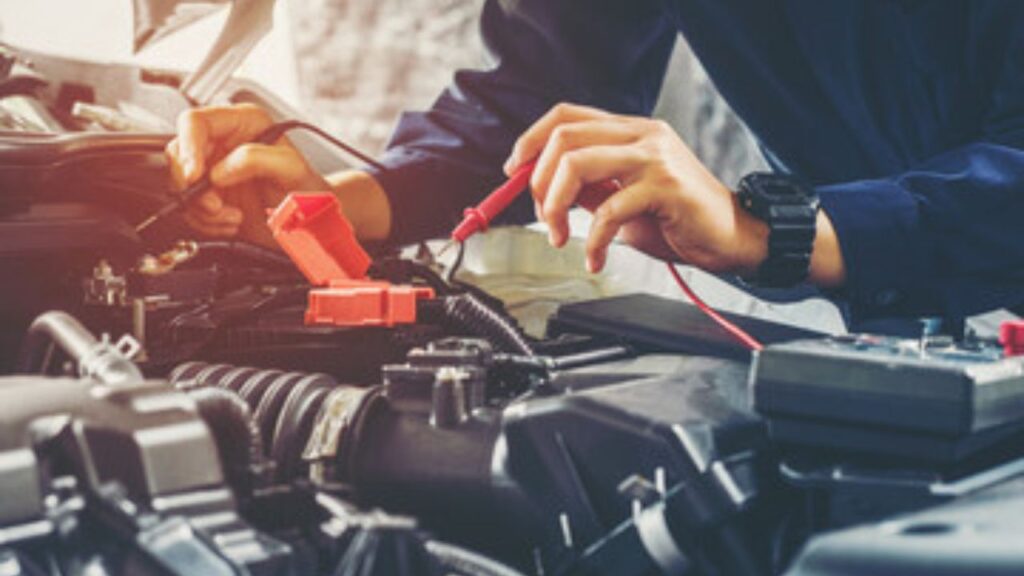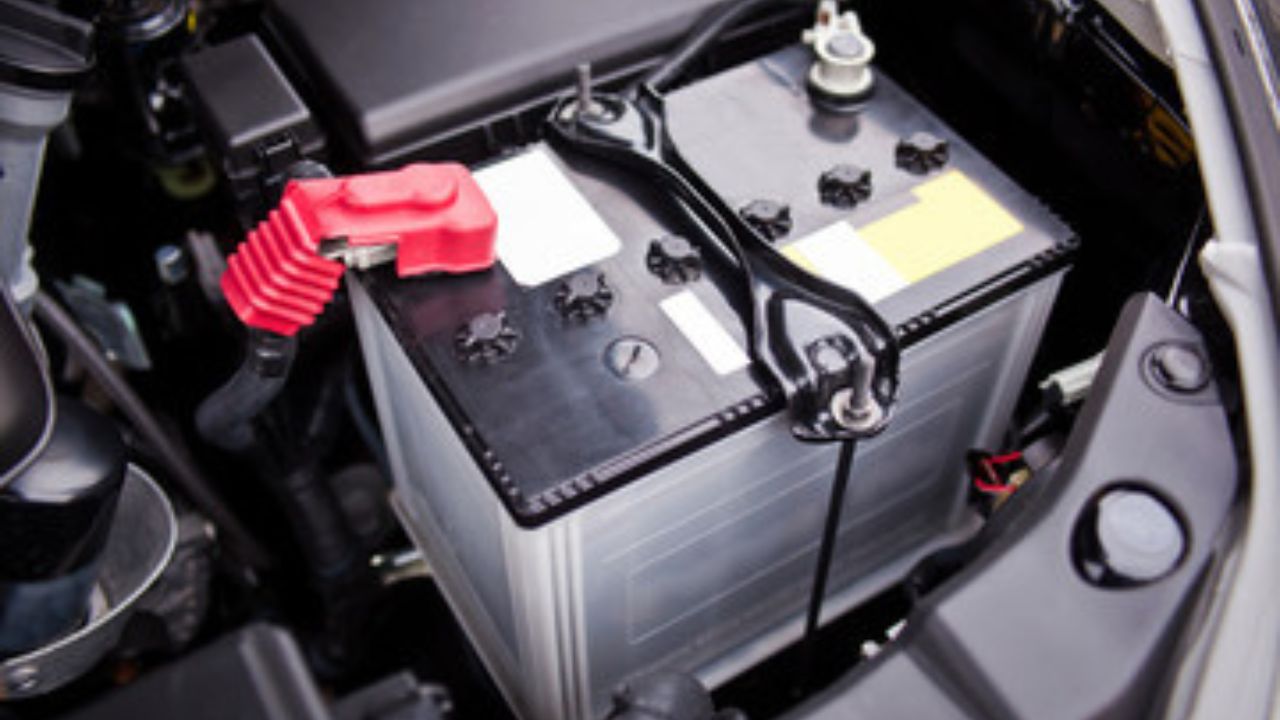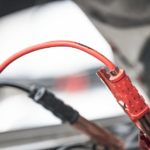How To Increase Car Battery Life?
Are you tired of constantly replacing your car battery? Do you want to know how to increase your car battery’s life? In this guide, we will explain the importance of a car battery and provide tips on how to increase its lifespan.
Your car’s battery is an essential component that provides the electrical power required to start the engine. Without a functioning battery, your car won’t start, and you won’t be able to go anywhere. The battery also powers the lights, radio, and other electrical systems when the engine is not running.
Understanding Car Battery
A car battery comprises several cells containing lead plates immersed in sulfuric acid solution. A chemical reaction takes place between the lead plates and electrolyte solution that results in the production of electrical energy that is used to operate the vehicle. There are two main types of car batteries
- Flooded/Wet Cell Batteries are common and require regular maintenance.
- Sealed Batteries don’t require regular maintenance but are expensive.
Factors Affecting Car Battery Life
Several factors that directly or indirectly affect the car battery life are as follows
- Time (after 3-5 years battery life tends to decrease)
- Non-Functionality (if the car is stored for a long period of time)
- Driving habits (aggressive driving, frequent short trips, high speeds)
- Poor Maintenance (no cleaning, overcharging, undercharging)
- Incompatibility between vehicle’s power and battery size.
- Poor Weather conditions (extreme weather, exposure to humidity and moisture)
Tips to Improve Car Battery Life
1. Keep the Battery Clean
Over time dirt, debris, and mist can accumulate over the battery case and its terminals also get corroded. This not only impedes the flow of electrical energy but also can lead to short circuits by trapping the heat inside the battery. Corroded battery terminals are cleaned by a wire brush or battery terminal cleaning tool. After cleaning, a small amount of petroleum jelly or grease is applied to the terminals to prevent further corrosion. The battery case is cleaned of dirt and mist by spraying a mixture of baking soda and water and then wiping it off with a dry cloth.
2. Regularly Check Battery Voltage
It is recommended to check the voltage of the car battery at least once a month using a voltmeter, especially during extreme weather conditions. For this ensure that the engine and all electrical accessories of the car are off. Connect the positive and negative leads of the voltmeter to the corresponding terminals.
- 12.4 to 12.7 volt ……… No need to charge
- 12.1 volt ………. 50% charged (charge immediately)
- 11.7 volt ………. 25% charged (charge immediately)
- 10.0 volt ………. 0% charged or dead (replace the battery)
3. Avoid Short Distance
Each time you start the car, you put a load on your battery and the alternator needs enough time to recharge it. This is not possible during short trips. If you frequently use the car for short visits you will decrease the battery’s life. So you should prefer walking or using a cycle for short trips.
4. Use Electronics Conservatively
A conservative use of electronics lessens the strain on your battery and increases its life. Turn off all the lights in the car before leaving. Limit the use of air conditioners and prefer rolling down the window in good weather conditions. Lowering the volume of the radio is also another option.
5. Turn off All Electrical Components Before Turning off the engine
When the engine is running it provides energy to the electrical components and charges the battery at the same time. If the engine is turned off before turning the electrical components off, the battery becomes the only source of power for electrical accessories. This limits the life of the battery by putting a load on it. Thus it is necessary to turn off ACs, stereos, and lights before turning off the engine.
6. Drive the Car Regularly
When you don’t drive the car regularly its battery loses its charge. Moreover, the electrolyte solution in it tends to evaporate which leads to the deposition of sulfate crystals on lead plates that are difficult to remove. This is called sulfation. Both of these processes can lessen the life of the battery. Thus driving a car for at least 20 minutes a week is recommended to avoid this.

7. Disconnect Battery When Not in Use
It is recommended to remove the car’s battery when it is not to be used for a prolonged period. For this release the negative terminal first and the positive terminal the last. Store the battery in a cool and dry place after detaching. This helps prevent the battery from discharging.
Reminder: While re-attaching always connect the positive terminal first and the negative terminal last to avoid short circuits.
8. Inspect the Alternator and Charging System
Suppose you are facing any difficulty in starting the car or running it smoothly or continuous dimming of the headlights. In that case, these may be the signs of a failing alternating or charging system. A voltmeter or a “load test” by a mechanic is used to check the function of the alternator. If nonfunctional, repair it or replace it as soon as possible.
9. Ensure that the Battery is Tightly Held
It is essential to keep the battery in its place with battery clamps otherwise continuous vibration and spillage of electrolyte solution will damage the lead plates inside the cell and it will lead to the short-circuits. Care should also be given to not fasten the battery too tightly in place as it will lead to damage in the case of the battery during its removal.
10. Park the Car in a Shelter or Garage
During extreme summers if you leave the car in the sun, without proper parking excessive heat will lead to the evaporation of water inside the battery which will decrease its lifespan. Though the battery will work smoothly during summer, starting the car in winter becomes difficult as the damaged battery can’t turn the engine on.
11 . Regular Service
Get your battery regularly serviced from a workshop so that small defects may be recognized and repaired earlier. This cost-effective service can prolong the life of the battery.
Read more: Car Engine Types And Which One Is Best?
Signs of a Failing Battery and What to Do

Car batteries have a limited lifespan, typically ranging from 3 to 5 years, depending on usage and maintenance. Over time, the battery’s internal components degrade, and its ability to hold a charge diminishes. Here are some common signs that your car battery is weak or dying:
Slow Cranking
If your engine cranks slowly or takes longer than usual to start, it could be a sign of a weak battery. The starter motor requires a significant amount of current to turn the engine over, and a weak battery may not provide enough power.
Dimming Lights
If your headlights, interior lights, or dashboard lights appear dim or flicker when you start the engine, it could indicate a weak battery. As the battery loses its ability to hold a charge, the electrical systems may not receive enough power to operate correctly.
Clicking Sounds
If you turn the ignition key and hear a rapid clicking sound, it could be a sign that the battery is not providing enough power to start the engine. This is often caused by a weak or dead battery or a faulty starter motor.
Battery Warning Light
Most modern cars have a dashboard warning light that indicates a problem with the battery or charging system. If the battery warning light comes on, it’s essential to have the vehicle checked by a professional.
FAQs
How often should I replace my car battery?
The average lifespan of a car battery is around 3-5 years, but this can vary depending on factors such as the climate and frequency of use. It’s recommended to have your battery tested by a professional mechanic every year after the 3-year mark to ensure it’s still functioning properly. If you’re experiencing issues with your battery, such as slow starting or dim lights, it may be time to consider a replacement.
Can I jump-start my car with a different type of battery?
While it is technically possible to jump-start your car with a different type of battery, such as a marine battery, it’s not recommended. Different types of batteries have different voltage and capacity ratings, and using the wrong type of battery could cause damage to your vehicle’s electrical system. It’s best to use a jumper cable and another vehicle with a compatible battery to jump-start your car.
What is the average lifespan of a car battery?
The average lifespan of a car battery is around 3-5 years, but this can vary depending on factors such as the climate and frequency of use. Regular maintenance and testing can help extend the lifespan of your battery.
How do I know if my car battery is fully charged?
A fully charged car battery should have a voltage reading of around 12.6 volts or higher. You can use a voltmeter to test the voltage of your battery. Additionally, a fully charged battery should be able to start your vehicle without any issues, and the lights should be bright and consistent. If you’re experiencing slow starting or dim lights, your battery may not be fully charged.
Conclusion
Prolonging your car battery’s life can help you save time and money while ensuring that your vehicle stays in top condition. With proper care and maintenance, your car battery can provide reliable service for many years to come. So, make sure to implement these tips and techniques and enjoy the peace of mind that comes with a well-maintained car battery. For information on car battery services in Dubai, contact us at +971505073124.





